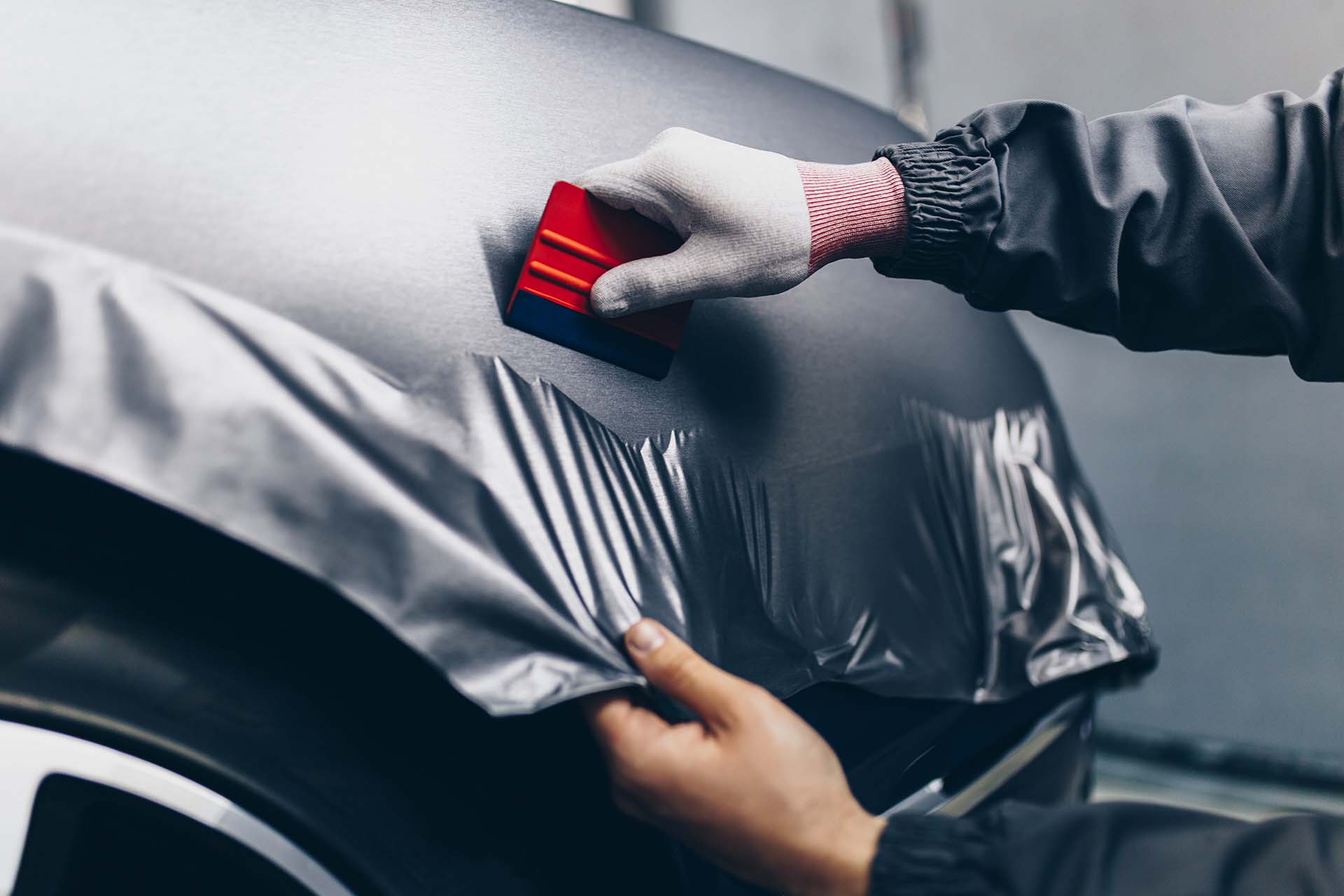Blog>Trade>Starting a Business>How to start a painting and decorating business
Last updated: 29 April 2024
How to start a painting and decorating business
If you’re looking for a creative trade, or you’re an experienced decorator who wants to step out on their own, then starting a painting and decorating business may be the answer to your professional goals. Here’s what you need to know about building a painter-decorator business from the ground up.
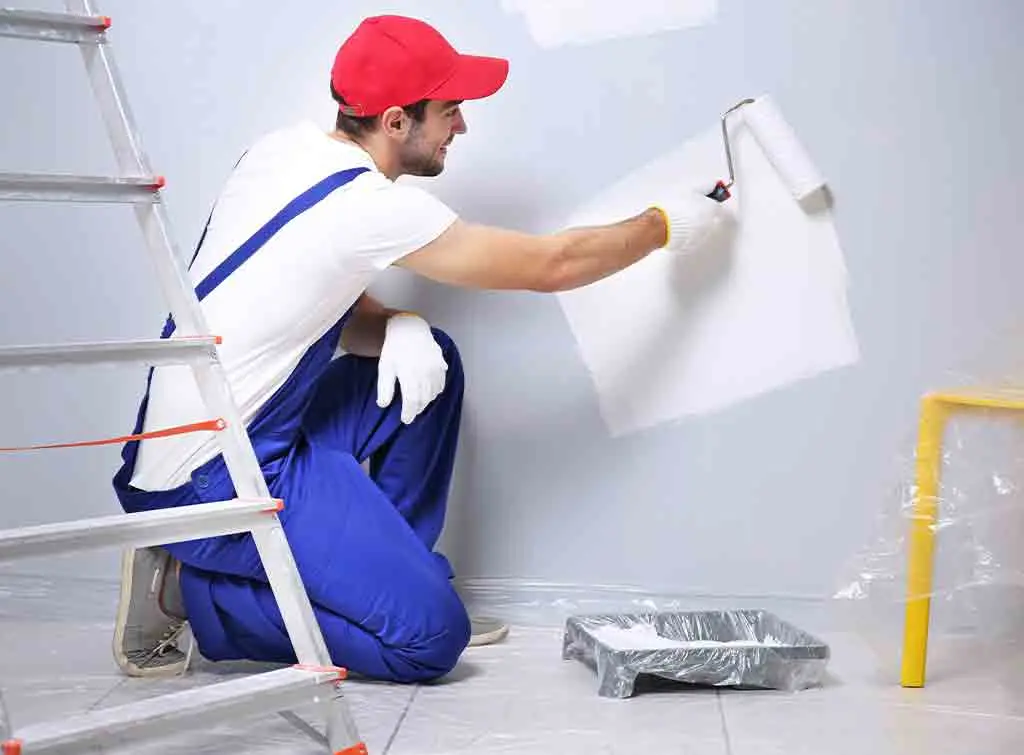
Why start a painting business?
When it comes to starting any new trade company from scratch, it goes without saying that you want to create a business that’s fulfilling, freeing, and engaging.
Certainly, you want something that lets you work a career you love on your own schedule.
And that’s exactly what setting up a painting and decorating business enables you to do.
However, starting a painting and decorating business is no simple task.
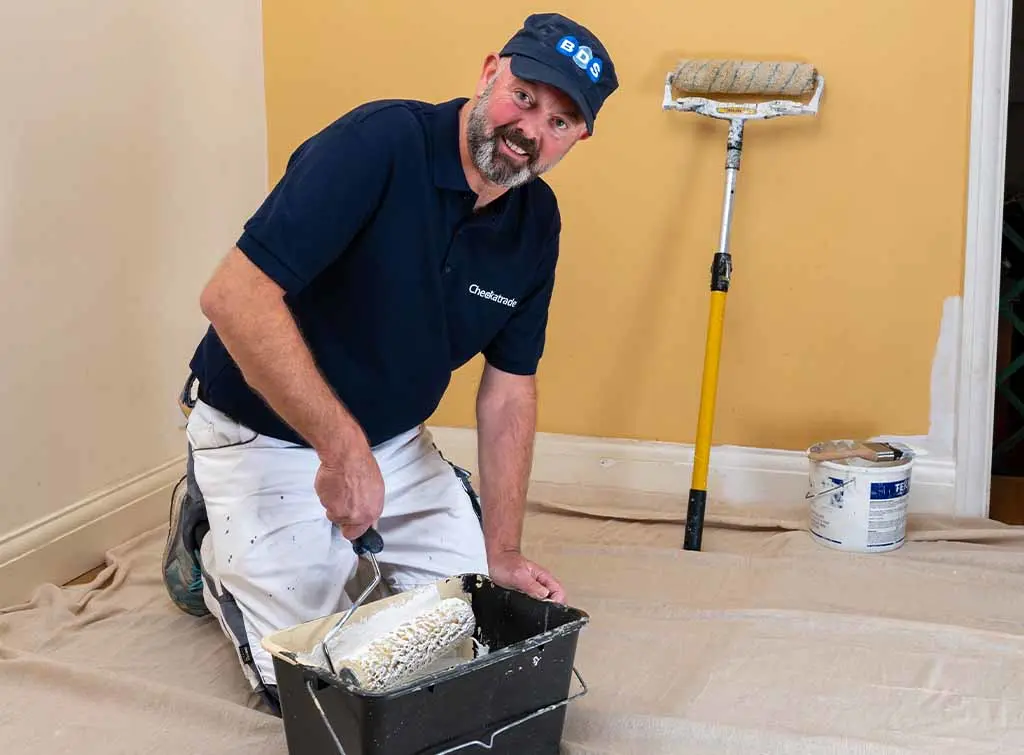
So, to help you decide if starting a painting business is indeed right for you, we’ve broken down everything you need to know about the business-building process in this article.
Creating a painting and decorating business plan
Regardless of how experienced you are in your craft, a good painting and decorating business plan is absolutely essential when starting any new business.
This plan should be one of the first things you tick off your list.
Any good business plan will include the following information:
Your business goals – what are they and how do you intend to achieve them?
Startup costs – what initial financing will you need to build your business and buy your tools?
Finance management – how will you manage your finances; will you need to hire an accountant, or can you handle them yourself?
Your services – what does your business offer its customers and what areas of work do you specialise in? For example, if you’re a new business, you should cover a broader selection of work, settling on niches as you gain more experience and job preference
Your target audience – who are your customers going to be, and will you be focused on residential work, commercial, or a mixture of both? Commercial work often offers bigger projects than residential, but it can also incur further costs if additional staff and tools are needed for certain projects
Your prices – how much will you be charging your customers for each project? Will you operate on an hourly or day rate?
Your area of operation – where will your business operate? Smaller areas have a more limited customer base, but you’ll spend less on travel costs
Types of marketing – how will your business reach out to new customers?
Your working hours – how many hours and days do you plan to work a week?
Naturally, you should spend as much time as possible solidifying exactly what your business plan is going to entail, so you have a clear goal and vision in mind.
And if you want help doing this, then you can download our free business plan template below and read our blog on how to write a business plan.
What qualifications should a painter-decorator have?
There are no legal requirements saying that a painter-decorator must have a specific set of qualifications to start work.
However, it is highly recommended that you seek out some form of certification prior to setting up a painting and decorating business – especially if you’re not already experienced in this trade.
Not only will accreditations signal to your customers that you know what you’re doing, but it will attract more jobs early on, which is important for a start-up to help offset your initial equipment costs and other expenses.
You’ll also be comfortable with the knowledge that you definitely have what it takes to succeed in your trade career.
What painting qualifications are available?
To earn your painting qualifications, or hone your existing skills, we recommend pursuing one or all of the following course options:
Level 1 Award/Certificate in Basic Construction Skills – Painting and Decorating
Level 1 Certificate in Construction Crafts – Painting and Decorating
Level 1/2/3 Diploma in Painting and Decorating
You can also find out more about what sorts of painting and decorator training is available in our article on training to become a painter decorator.
Getting CSCS certified
While the qualifications we’ve mentioned above are important, you can also boost your business profile and maximise potential business opportunities further by acquiring a Construction Skills Certificate Scheme (CSCS) card.
Such a card is very important if you plan on working in the commercial sector.
Many commercial painting and decorator jobs often involve working on a construction site, and a CSCS card is a legal requirement to take on projects in such a location.
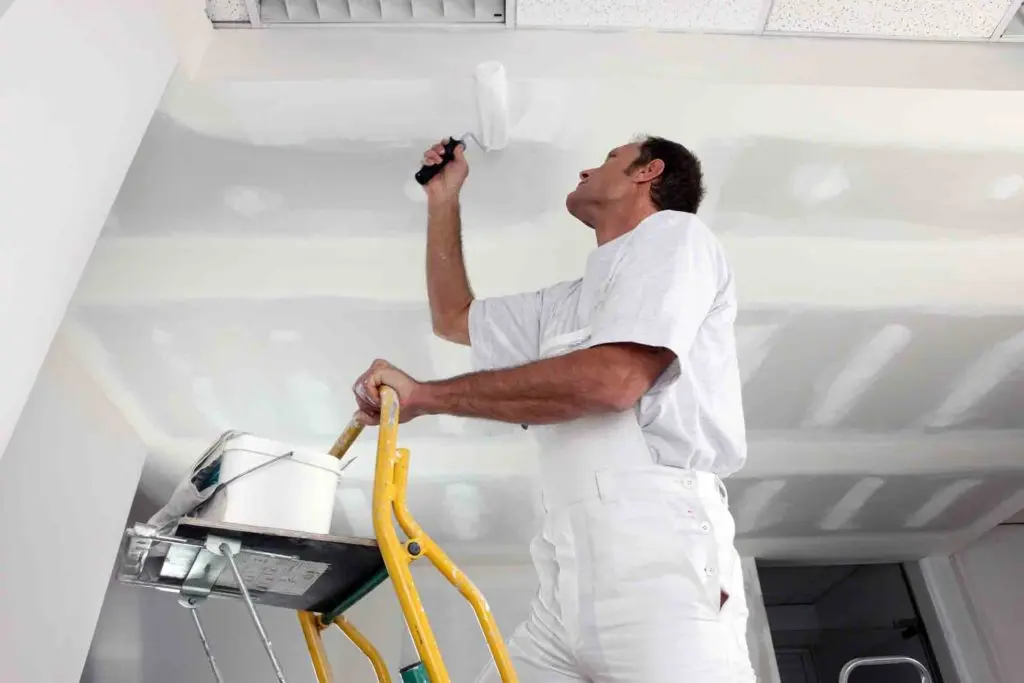
What business skills does a painter decorator need?
We’ve already mentioned how a painting and decorating business plan and a degree of experience in this trade area are both essential components when learning how to set up a painting and decorating business.
But what other skills are required to be successful?
If you’ve not guessed already, running a business of any kind requires numerous other ‘soft skills’ and attributes in order for you to be successful.
These can include, but are not limited to:
Product knowledge – an excellent degree of painting and decorating product knowledge will go a long way towards making your varied project preparation easier
Interpersonal skills – essential for any business, good interpersonal skills and great customer service will make customers far more inclined to recommend you and leave a good review
Management training - the ability to lead and manage your employees is crucial for a smooth and friendly working environment
Conviction - having conviction in your business and work decisions will go a long way to building your own confidence and decorating knowledge
Patience -having patience, fairness, integrity, and self-awareness of your customer needs means you’ll always be prepared for whatever a tricky project throws your way
Enthusiasm and endurance – not every decoration job will be quick, which make shaving these two attributes vital for long projects
Financial understanding - an understanding of finance will make it far easier for you to manage your business finances and pay your employees
If you want more information on what other skills are required to operate your own business, then why not have a look at our article on becoming your own boss?
Give your painting and decorating business the best chance of success
Join the best trades on the UK's leading trade directory
How to set up a painting and decorating business
With a business plan under your belt and the experience and qualifications needed to get started, let’s now look at what it takes to launch a new business.
As you’ll see, there are quite a few practical steps you need to be aware of before you can begin trading.
1. Registering your business
In order to operate legally in the UK, your business will need both a name, and to be registered with HMRC in order for you to pay any associated taxes on your business and earnings.
Settling on a name is simple enough, but where it gets more complicated is in how exactly you want your business to be constructed.
I.e., do you want to operate as a sole trader or a limited company?
There are a variety of pros and cons that come with either business type, so be sure to research them both thoroughly before making your decision.
2. Painter-decorator insurance
Although any form of business insurance may seem like an extra cost when starting out, it’s highly recommended you obtain the right cover for your business needs to protect yourself against unforeseen disasters.
Your painter and decorator insurance should cover all aspects of your business, including your tools, materials, equipment, work van, and even your income.
There’s a lot to cover in this area, which is why you can read about it in more detail in our article on painter-decorator insurance.
3. Accounting and bookkeeping
It may not be the most exciting task, but it’s vital to keep an eye on the numbers when you run your own business to make sure your new company is profitable.
Effectively keeping a close eye on the finances coming in and out of your business is the best way to manage your finances efficiently.
This will let you easily track whether invoices have been settled, and claim relevant business expenses in preparation for your self-assessment tax return.
But if this sounds like a lot, don’t worry, we cover all you need to know about accounting and bookkeeping in our article on small business accounting, including whether or not you should hire an accountant to assist you in this area.
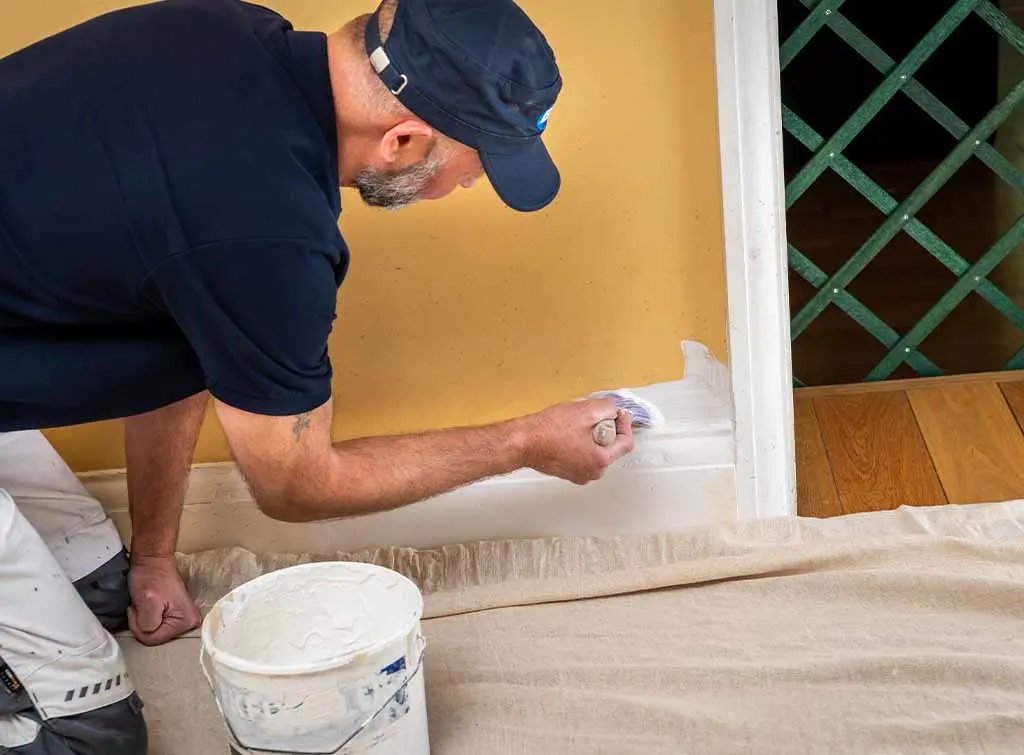
4. Acquiring a painter and decorator’s toolkit
All trades, no matter their specialised field, need the right suite of tools, gear, and equipment in order to do the job properly – and a painter-decorator is no exception.
Naturally**, the painter-decorator tools you’ll need when starting your business will depend on your specialisations** and the type of finishes customers request, but any good painter and decorator needs the following set of kit:
A selection of good-quality paintbrushes
Paint rollers and trays
Cleaning materials
Dust sheets
Sandpaper
Spirit levels
Knives and scissors
Stepladders
Workwear overalls
Wallpaper smoothers
Filler and filling knife
Wallpaper scrapers
If you want a full breakdown of all the tools you’ll need as a painter and decorator, then we suggest browsing our article covering all the essential decorating tools.
Also, don’t forget that as a Checkatrade member, you can enjoy fantastic discounts on any equipment and insurance you buy for your business.
Save money on business expenses and keep your profits tight
Checkatrade members save up to £470 per year on business essentials
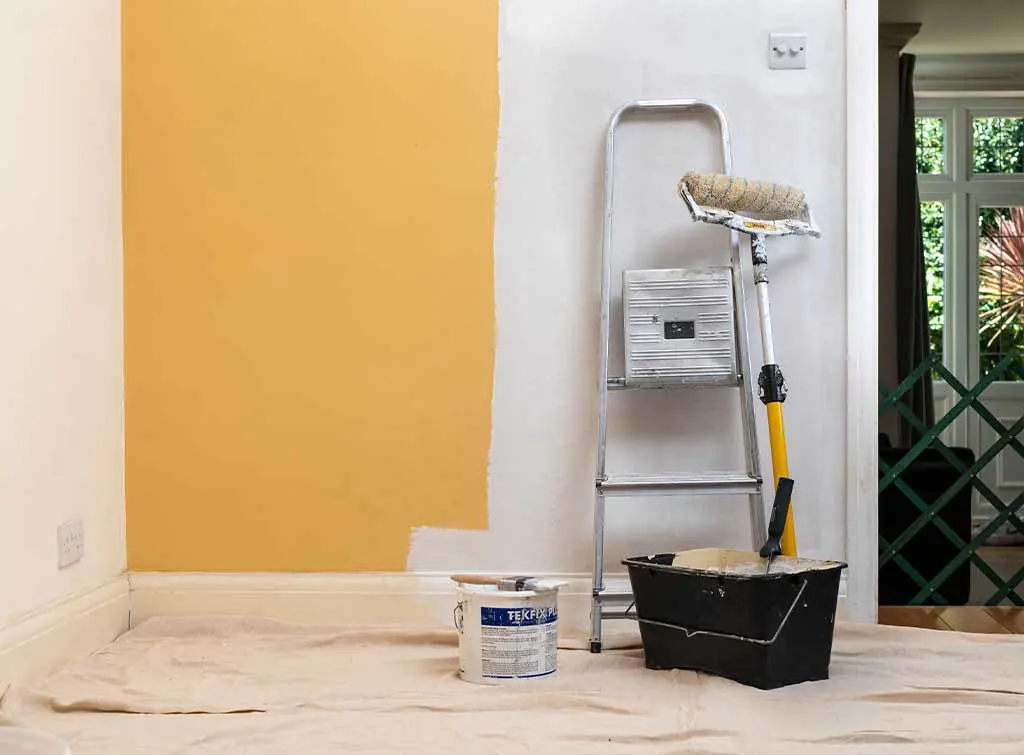
Painter-decorator FAQs
Is painting and decorating a good trade?
Absolutely!
Painters and decorators are often in high demand. So, those running this sort of business will have plenty of opportunities to grow their income. Both through commercial and residential projects.
How much does it cost to start up a painting business?
We can’t tell you how much it will cost you to start a painter-decorator business. Though it’s certainly cheaper to start than other trades.
What’s so great about painting and decorating is that it doesn’t require you to invest heavily in qualifications. And the start-up costs are relatively low besides buying new equipment, transportation, and relevant business insurance.
What do professional painting and decorators charge?
A self-employed painter and decorator’s hourly rate can vary significantly, with an average £37per hour leading to daily earnings of around £296 but you might choose to charge more for particularly difficult jobs.
In fact, a lot of professionals may quote for the job rather than a day or hourly rate. But it’s really up to you.
For more detail on this, we suggest reading our article on what a painter and decorator can earn.
Save money on business expenses and keep your profits tight
Checkatrade members save up to £470 per year on business essentials
Content disclaimer: This content has been created for general information purposes and should not be taken as formal advice. Read our full disclaimer here.
